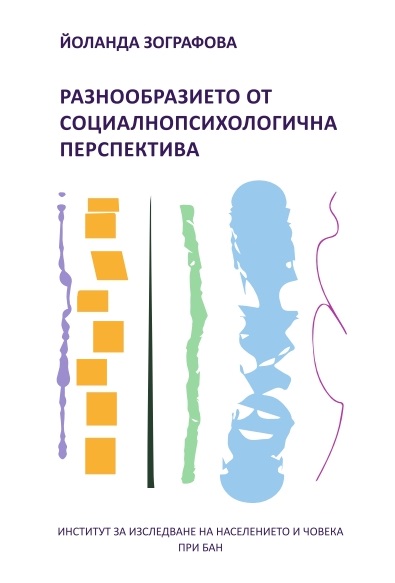Разнообразието от социалнопсихологична перспектива
Diversity from Social Psychological Perspective
Author(s): Yolanda Zografova
Subject(s): Social Sciences, Psychology, Sociology, Migration Studies, Ethnic Minorities Studies, Globalization, Identity of Collectives
Published by: Институт за изследване на населението и човека - Българска академия на науките
Keywords: Diversity; intergroup relations; deprovincialization; common group identity; attitudes towards minorities.
Summary/Abstract: This study is centered around the socialpsychological manifestations of the diversity among the phenomena of intergroup relations, social identities and collective behaviour patterns. The main objective is to conceptualize diversity from a socialpsychological perspective, while positioning this point of view in a broad field of social knowledge. Based on a study of interethnic attitudes in Bulgaria and on a metaanalysis of European social survey and Eurobarometer data, the book elaborates the problematic of preconditions for European citizens', including Bulgarians' readiness to accept Others, to support minorities in their cultural preservation and their participation in European political processes. The book presents theoretical models that comprise the effects of diverse factors upon the attitudes towards immigrants moving to Bulgaria and the European Union. Given the condition of increased ethnonational and cultural diversity, the personality parameters are being inscribed into broader range of social groups and social categories and develops diverse identities. Choosing diverse social groups and categories to which an individual might affiliate to and identify with, is a key factor for the construction of a social identity complexity. Multilayered identity clusters have been analysed through surveys, presented here in order to problematize both personal and collective level of these choices. The effects that intergroup contacts produce, as well as those of the different types of social identities, over the interethnic relations in Bulgaria, have been presented. The study aims to outline the major trends in intergroup relations in the country. The study concludes that the development of common group identities and positive contact presuppose higher levels of tolerance and mutual support on an intergroup ground, as it elaborates the complexity of collective identity in the context of the EU citizenship.
- Print-ISBN-13: 978-954-2987-20-8
- Page Count: 2010
- Publication Year: 2016
- Language: Bulgarian
- Table of Content
- Introduction
- eBook-PDF
- Sample-PDF

